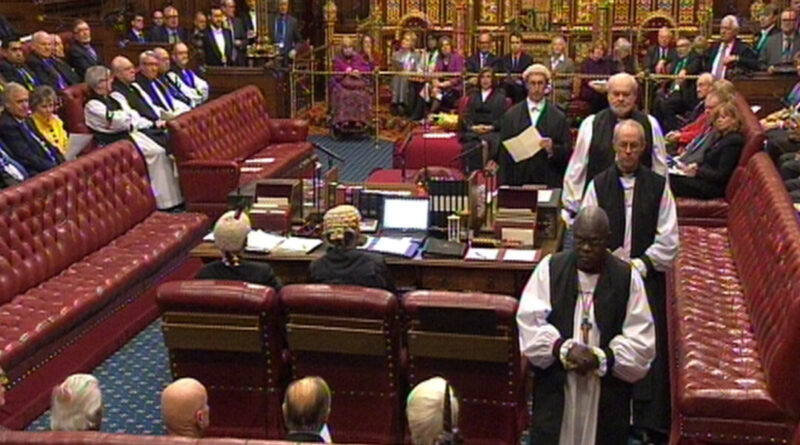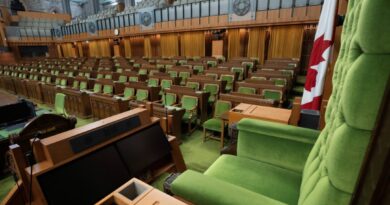Attempt to Banish Bishops from House of Lords Thwarted by Tories
Labour’s Bill to abolish hereditary peers has successfully passed its second reading in Parliament. However, a Conservative MP’s attempt to remove clerics, specifically Church of England bishops, from the House of Lords was rejected.
In a surprising move, Conservative former minister Sir Gavin Williamson tried to amend Labour’s bill to also exclude bishops from the upper chamber. His argument was that it is unjust for these clerics to have legislative powers over his constituents.
Despite some Labour MPs possibly supporting the secularization of the House of Lords, they voted against Williamson’s amendment, resulting in a resounding rejection by 378 votes to 41.
The government is currently working on reforming the Lords by eliminating all hereditary peers. Meanwhile, the Archbishop of Canterbury announced his resignation on the same day as the debate, following a critical report on the Church of England’s handling of abuse cases.
‘Politicians in Dog Collars’
Conservative MP Andrew Murrison voiced his support for the amendment, highlighting that bishops should focus on their spiritual duties rather than being involved in politics. SNP MP Pete Wishart also questioned the bishops’ priorities, suggesting they should handle more pressing matters.
Labour’s election manifesto includes plans to impose a retirement age for Lords and aims for a more representative second chamber in the long term. The government has yet to provide a timeline for further changes to the House of Lords.
Despite criticism, Labour defended its approach to reform, citing past failures when attempting comprehensive changes to the House of Lords. The Bill passed its second reading in the Commons with significant support and is now set for further scrutiny in the Lords.
‘Constitutional Clickbait’
In the upper chamber, Conservative peer Lord Dobbs criticized the removal of hereditary peers as “constitutional clickbait” and accused Labour of narrow-mindedness and vindictiveness in seeking reform. Other peers raised concerns about the impact of eliminating hereditary peers and the potential hurt it may cause.
The fate of the Bill now rests in the hands of the Lords, where it may encounter stronger opposition. The government views this as an initial step towards reforming the House of Lords, while critics suggest a more cautious and inclusive approach may be necessary.



